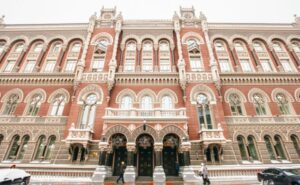
The National Bank of Ukraine fined FC Goldana Plus LLC and FC Forward Finance LLC UAH 340,000 each.
According to the regulator, the companies failed to properly submit accurate information and documents in full to the NBU upon request.

The National Bank of Ukraine has fined Clearing House Bank UAH 200,000 for violating financial monitoring legislation.
In particular, the bank failed to comply with the prohibition on notifying customers of decisions made by the specially authorized body for financial transactions, the NBU said.

The National Bank of Ukraine has imposed sanctions on Motor Bank, fining it UAH 3.0 million.
According to the regulator, the bank violated the requirements of the legislation in the field of preventing money laundering and terrorist financing, in particular, in terms of proper customer verification and the application of a risk-based approach.

In December 2025, the state-owned Oschadbank was fined UAH 5.5 million by the National Bank of Ukraine for violating financial monitoring legislation.
As noted by the regulator, the violations identified concerned the application of a risk-based approach and proper customer verification in the area of AML/CFT. In addition, the NBU issued a written warning to the bank.

The National Bank of Ukraine fined TAScombank UAH 10.0 million for violating anti-money laundering and counter-terrorist financing (AML/CTF) requirements.
In particular, the violations concerned the application of a risk-based approach and inadequate customer verification. The NBU also issued written warnings to the bank for late notification of threshold financial transactions and submission of incorrect information on foreign exchange transactions.